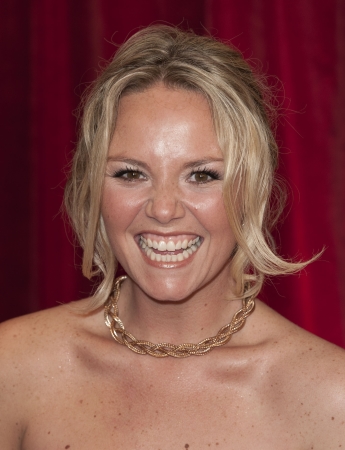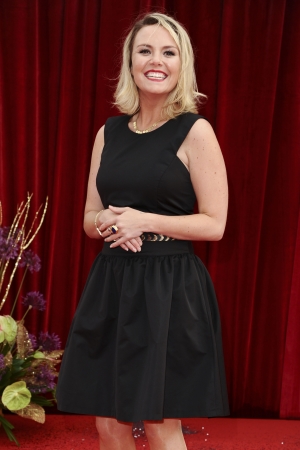Best known as Eastenders troublemaker Janine Butcher, bringing drama to Albert Square with a
medley of cocaine addition, murder and prostitution, Charlie Brooks is now taking her talent on
tour, playing Sandra in the iconic play, Beautiful Thing.
The ‘Walford witch’ has finally left the East End, and now you’ll be seeing Charlie Brooks in a wholly
different incarnation.
The actress has appeared in episodes of The Bill, Jonathan’s Creek and, of course, Eastenders, but
come spring, she’ll be taking on the theatre, appearing in Beautiful Thing.
The play follows two young men, Jaimie and Ste, and their blossoming romance in an inner city
housing estate. Together the two boys find comedy, warmth and the music of Mama Cass through
their loud-mouthed next door neighbor Leah. Brooks plays Sandra, Jamie’s mum and the local
barmaid.
“What doesn’t attract me to the play?” Brooks grins. “I was obsessed with the film when I was a kid, I
watched it like 100 times, I was one of the cult followers really. I remember seeing Surrane (Jones) in
the play last year and going ‘ooh, I want to do that, put me in it! Lo and behold, a year or two later
here I am, so it’s like a dream come true.”
It’s hard for bubbly Brooks to pinpoint exactly why the iconic play resonates with her – “Just the
content of the story,” she starts. “I went to theatre school where I had lots of gay friends – I had a
boyfriend that was gay!” she laughs.
“So it’s always been important, the performances in the film were just amazing and it’s a great character for me, so it’s a rally big draw all round really.”
And Beautiful Thing still endures to this day, despite being over 20 years old. “There are still,
especially in the regional areas where we are touring, people going through this very same issue and
people still terrified of coming out, they don’t know how to do it and they are scared of talking about
it. I think that it’s a timeless play, it’s brilliant, it’s funny, it’s sad, and I think that it speaks to a lot of
people still.”
We suggest that the role of strong young mum Sandra seems a happy fit for Brooks; “Are you saying
I’m a feisty single mum?!” the actress laughs. “What I’m hoping to do is to bring a great deal of
warmth to it, know what I mean? She’s feisty, she’s loud, she’s not afraid to speak her mind, she’s had
a hard life and fought to be where she is, fought to bring up that little boy, so the relationship that
they have is one that’s very special in the end.” Adding that, “I’ve got some of the best lines – I just
can’t wait to say them.”
Calling this, “completely different” from the television work for which she is best known, however,
Brooks is feeling the nerves. “With learning lines in Eastenders, they go in very quickly, it’s in and out
because it’s so quick and so fast paced. I haven’t done a great deal of theatre so this is all quite new,
so I’m shi**ing it to be honest! I just hope I’m ok. But it’s so exciting.”
It’s nerve-wracking, but it’s a positive step forward for the actress and mum of one. “I am busy, but
it’s great because I feel like I am achieving what I set out to when I left Eastenders, so I feel really,
really lucky,” she says.

The 18 week tour will also take her away from her daughter, Kiki, and it wasn’t an easy decision to
come to. “I love being at home, I love it. My daughter is 10 now which is such an important time and
I’ve never been away or gone away with work, so when this came up I had a lengthy conversation
with my immediate family members and decided that it was now my turn to be able to go off and
spend time away. We have a few days off in-between theatre moves so I’ll be able to get back and
she’ll also come down and see me, so we’re going to make it work. But I am a bit nervous about it.
She is very adaptable and my mum is there and her dad is there so I have a brilliant support system,
we have a close knit family.”
And even when the tour comes to a close, the stage will be calling once again. “I’m starting another
play called Contact at the Park theatre in Finsbury. It’s a new play about swinging! It’s a bit raunchy,
which I’m a bit nervous about but it’s exciting!”
Charlie Brooks will star as ‘Sandra’ in Beautiful Thing, touring the UK from 23 March 2015. www.beautthing.com



